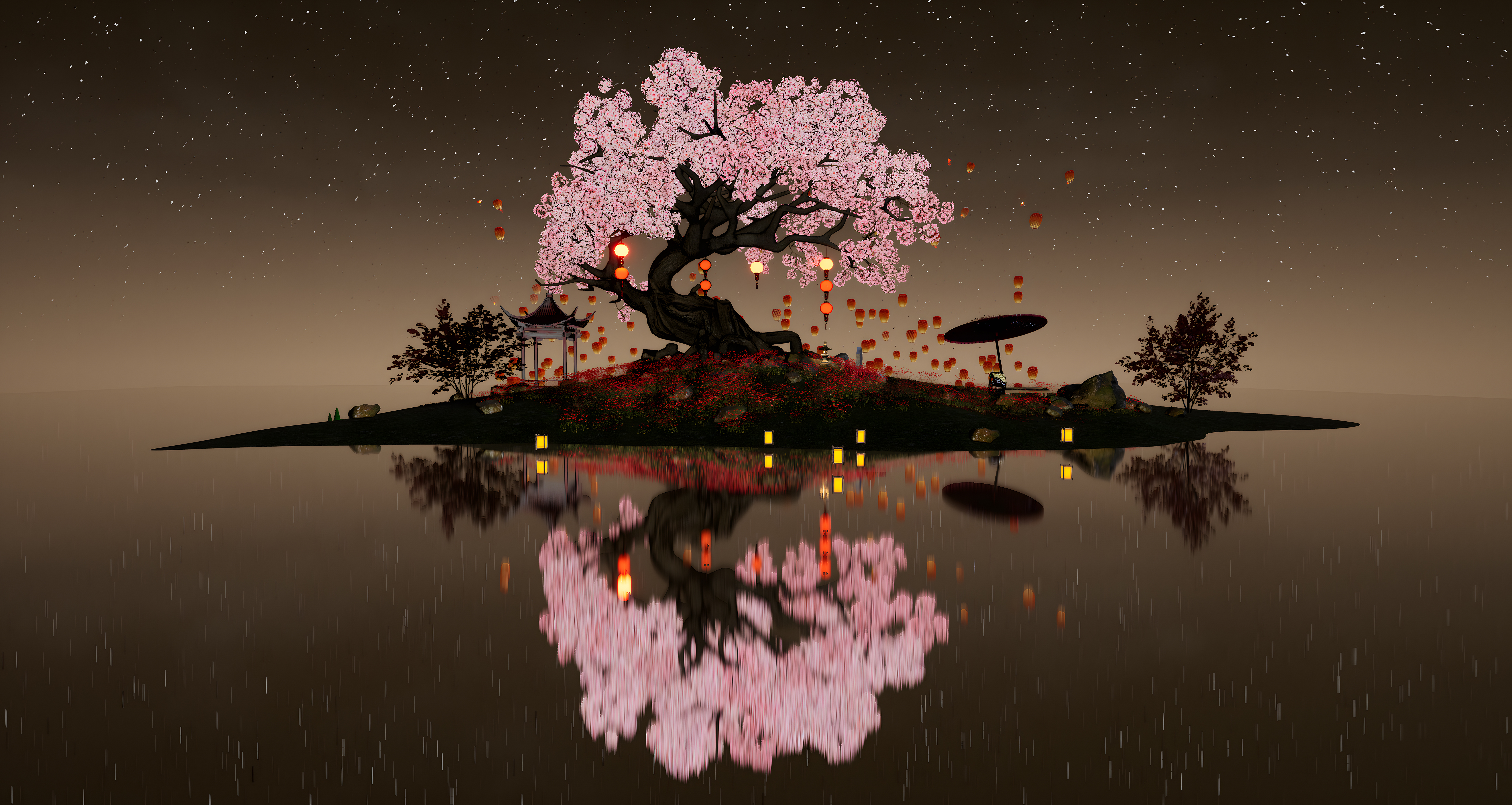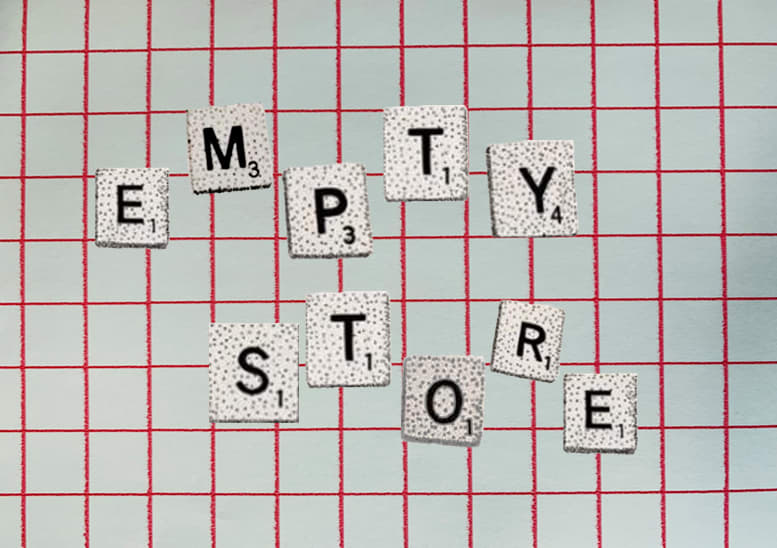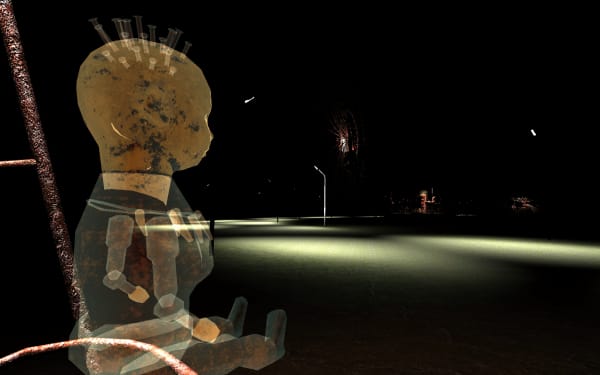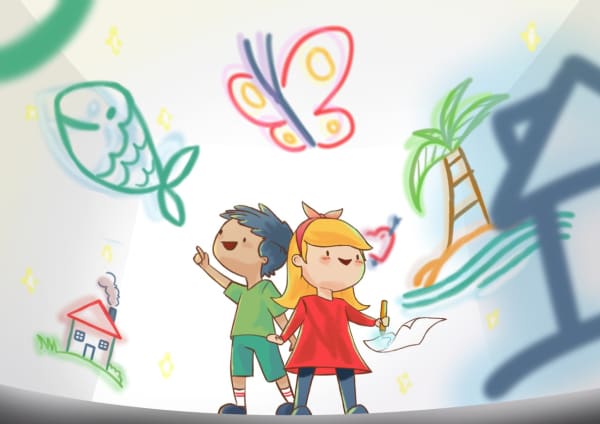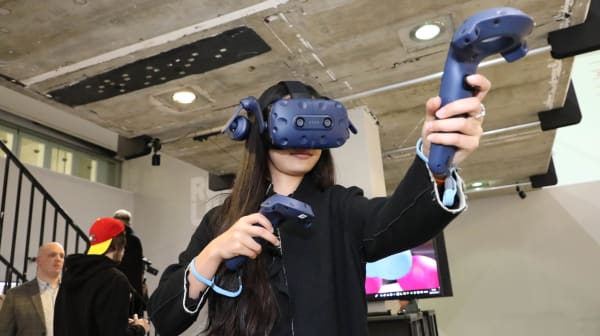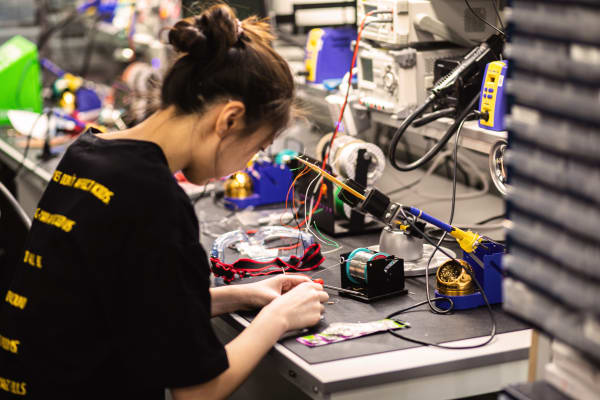Course units
In response to the Climate Emergency, UAL has embedded responsible practices within the curriculum. We shaped our courses around principles of social and racial justice, and environmental sustainability that ensure learning outcomes reflect the urgent need to equip you with the understanding, skills, and values for ethical practice and empower you to work towards an equitable future.
In common with all courses at the University of the Arts London, this course is credit rated. Years 1 and 2 must be passed to enter into year 3. Your degree is attained through full completion of the third year.
Year 1
Introduction to Immersive Media and Mixed Reality (20 credits)
This unit will introduce you to your course, subject specialism, and effective approaches to learning at undergraduate level.
You’ll get to know the practices and knowledge-base needed to understand your discipline, and be supported to develop skills for independent and collaborative learning, reflection and self-development.
Principles of Immersive Media (40 credits)
You’ll be introduced to the fundamental terminology, technology and technical skills that underpin immersive content creation. You’ll develop your creative and critical ideas in immersive media whilst exploring a range of key production areas including production pipelines, 360-degree video, Augmented Reality, Virtual Reality, and immersive media processes.
Immersive Narratives (40 credits)
Extending Principles of Immersive Media, this unit will give you a deeper understanding of how narrative is constructed, along with the tools used to create immersive experiences. You’ll have the opportunity to design and develop a series of short immersive projects that continue to explore the fundamental principles of immersive media production, and explore traditional, spatial and interactive narratives along with the importance of 360 spatial sound in immersive experiences.
Informed Practice 1 (20 credits)
You’ll be introduced to histories, theories and debates in relation to immersive media and media studies. You’ll begin to explore critical perspectives by considering how themes of climate, social and racial justice can be represented through immersive media production.
Year 2
Immersive Interaction (40 credits)
Building on your Year 1 units, this unit defines the technical and artistic principles that underpin immersive content production - enabling you to better understand the practices and skills needed to create professional immersive and interactive experiences.
You’ll also interrogate the user experience (UX), and develop your knowledge of user interfaces (UI), haptics and controllers in immersive and interactive media.
Professional Practices (20 credits)
Providing the tools and resources needed for you to begin building your professional skills and profile, this unit provides an opportunity to embed your learning around climate, social and racial justice by exploring how this can be represented through immersive media production. You’ll work with competition briefs and/or ‘live’ project(s) provided by industry and/or cultural partners.
Exploratory Practice (40 credits)
You’ll produce a portfolio of immersive media and mixed reality artefacts that demonstrate a developing understanding of your specialist practice and, most importantly, how that practice intersects with other mediums. You’ll work collaboratively with students across the course, programme and wider College to produce a portfolio of immersive projects that demonstrates your understanding of the broader context around your technical specialism.
Informed Practice 2 (20 credits)
You’ll develop your broader knowledge and understanding of the historical, social, theoretical and cultural developments of contemporary visual culture, and have the opportunity to further contextualise various aspects of art and design theory in its broadest sense within the context of immersive media and mixed reality.
Year 3
Final Major Project: Immersive Experiences (60 credits)
Your Final Major Project offers the potential to collaborate, giving you the opportunity to make a significant contribution to a major project in a specialist role within a small production team. You’ll individually develop a portfolio of tested concepts, themes and techniques, and following a pitch and selection process, project proposals will go into production and become part of your Degree Show.
Professional Futures (20 credits)
Building on your experiences gained through Professional Practices in Year 2, Professional Futures focuses on tailoring skills towards a specific role within the industry and supporting you to develop strong personal and professional methods and tools of presentation, such as a CV and personal website. You’ll consolidate and present both your skills and learning relating to climate, social and racial justice, and demonstrate how that knowledge has shaped your professional skillset.
Informed Practice 3 (40 credits)
This unit is the culmination of the Informed Practice component of the course. It provides you with the opportunity to utilise all of your knowledge and analytical skills related to visual culture and critical theory through the development of a self-determined and extended piece of written work.
Optional Diploma between Years 2 and 3
Between Years 2 and 3 of the course, you’ll also have the opportunity to undertake the following additional UAL qualifications:
Diploma in Professional Studies (Optional)
This optional diploma can be taken between Years 2 and 3. With support from your tutors, you’ll undertake a series of industry placements for a minimum of 100 days/20 weeks. As well as developing industry skills, you’ll gain an additional qualification upon successful completion.
Diploma in Creative Computing (Optional)
Between Years 2 and 3, you can undertake the year-long Diploma in Creative Computing. This will develop your skills in creative computing alongside your degree. After successfully completing the diploma and your undergraduate course, you’ll graduate with an enhanced degree: BA (Hons) Immersive Media and Mixed Reality (with Creative Computing).
